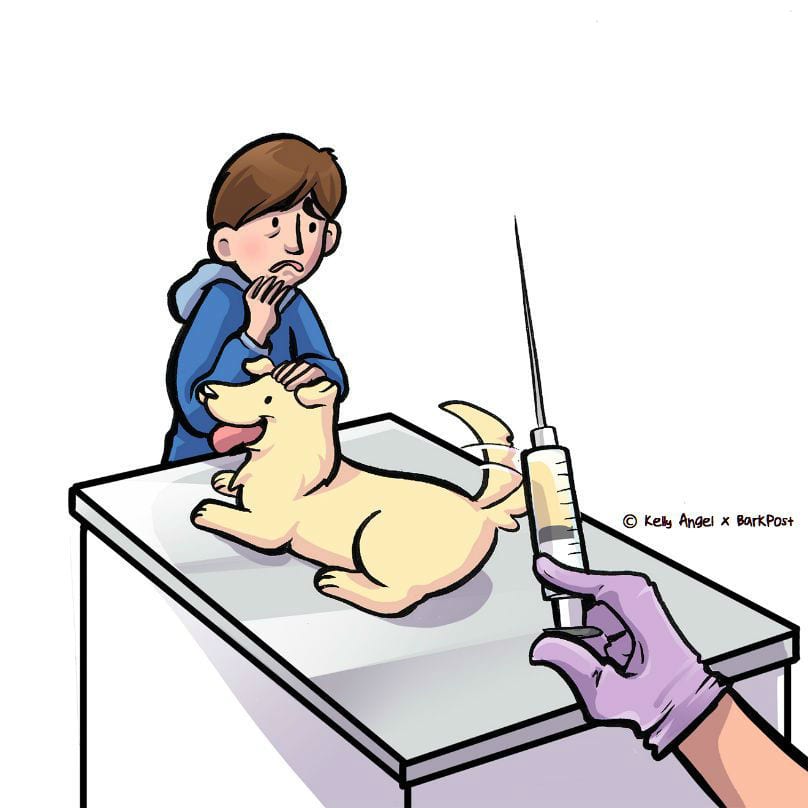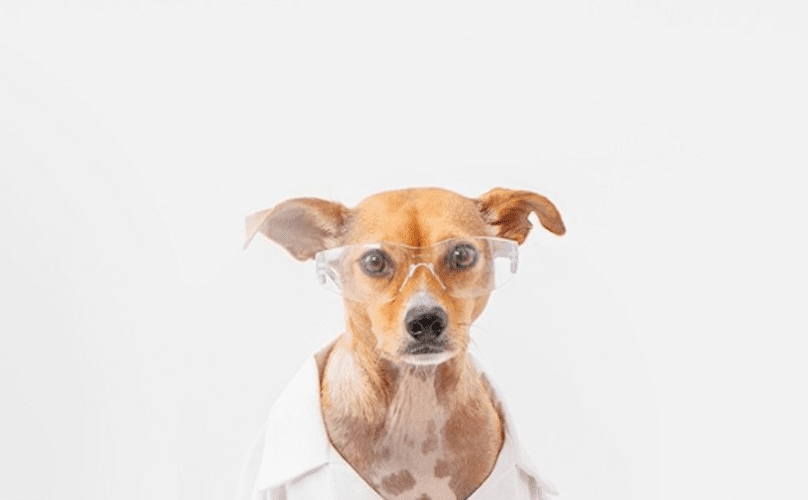Canine Partners for Life provides impeccably trained dogs to people with a wide range of physical and mental disabilities. These talented pooches become much more than just helping hands to the humans they assist; they develop into trusted friends and beloved companions.
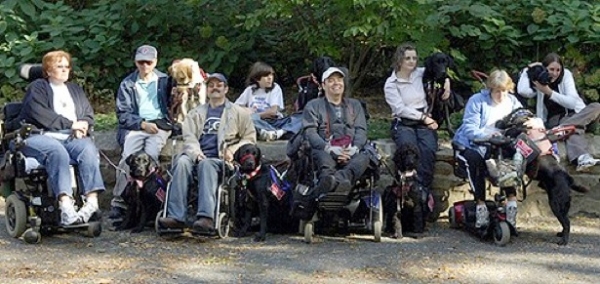

In honor of their 25th anniversary, Canine Partners has released a list of the 25 most useful tasks that they train their amazing service dogs to perform. In order to compile the list, they asked recipients of their dogs (whom they refer to as “partners”) to weigh in on how their service dogs have impacted their lives.
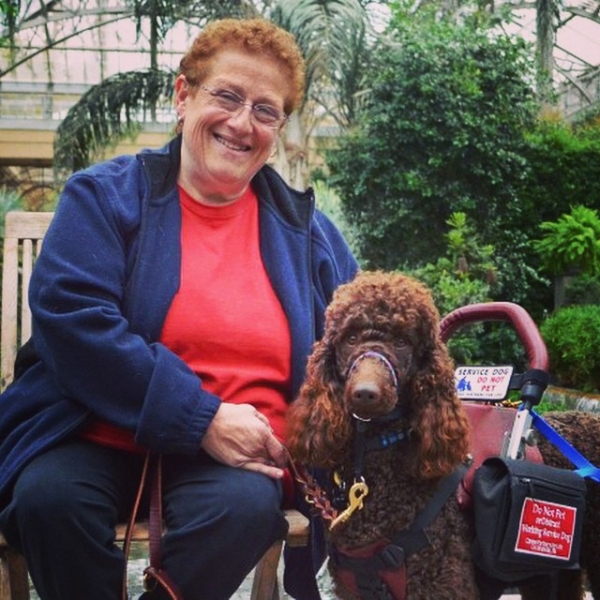

Some of the tasks that made the list may seem simple or arbitrary, but for the people who depend on these dogs, each service improves their quality of life and gives them back some of their independence.
1.Picking up dropped items
Whether the partner is in a wheelchair or suffers from limited mobility, a service dog can quickly retrieve a dropped item preventing stress and possible injuries for their companion.


Those with physical handicaps may have difficulty carrying things for various reasons including partial paralysis or the need to operate crutches or a wheelchair. This is one of the most fundamental tasks a Canine Partners dog must learn.
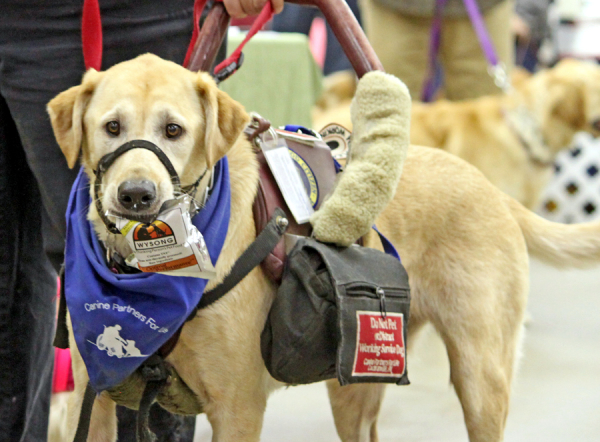

Something we all take for granted, dressing or undressing can be extremely difficult for those with certain conditions. Luckily, service dogs are always there to lend their paws and jaws!
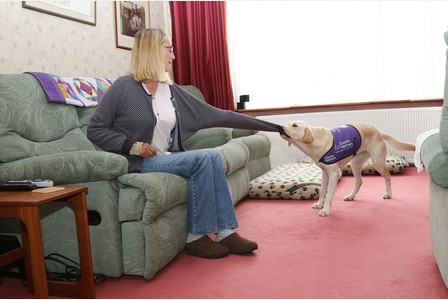

The pup seen below opens and closes all doors for his partner, allowing him to focus on controlling his wheelchair.
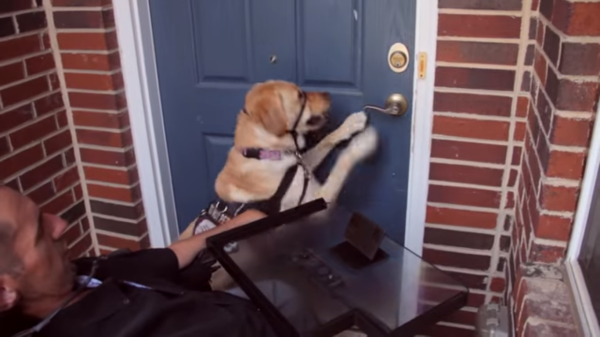

For those who must load and unload the washing machine and dryer from a seated position, it can be very frustrating and time consuming. Service dogs are taught to gently retrieve each piece of clothing and place it where their partner directs them.
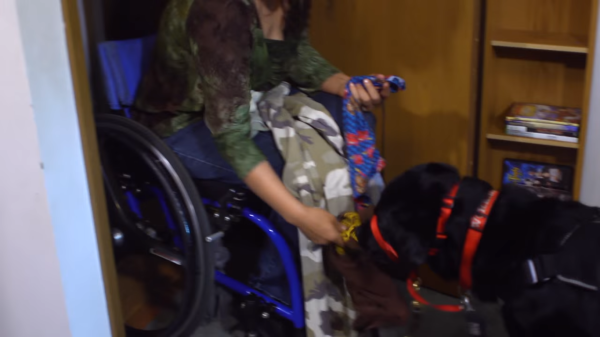

A trip to the mailbox could be very strenuous and potentially dangerous for some disabled partners. Their dogs happily perform this task for them.


A love for fetch is a desirable quality in a potential service dog – it comes in very handy when a partner needs an item brought to him or her.
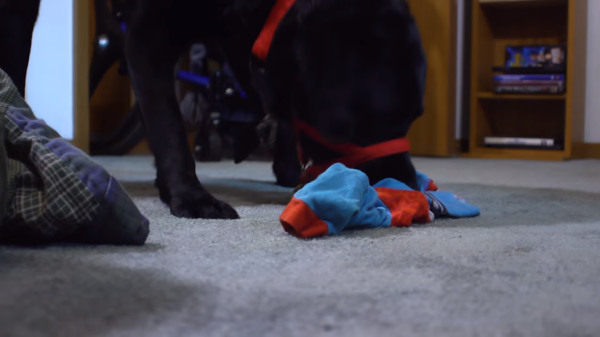

A difficult physical task is tied for eighth place with an important emotional service. This shows that although the top seven tasks involve physical assistance, the dogs also serve a very important psychological role for their partners.
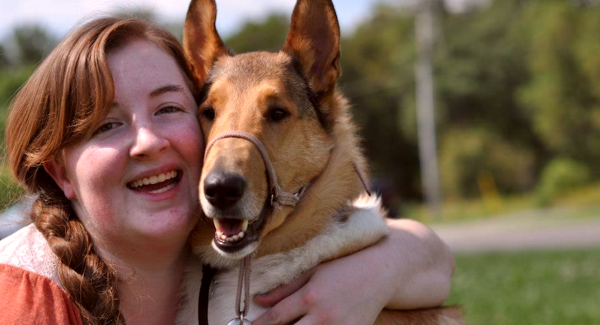

High and low shelves pose a challenge for many adults living with disabilities. Their service dogs make shopping easier and even fun.


Again, a physical task is tied with a psychological one. Retrieving the phone in an emergency is an extremely important service for disabled partners. For those with emotional conditions, simple companionship can drastically improve their lives.
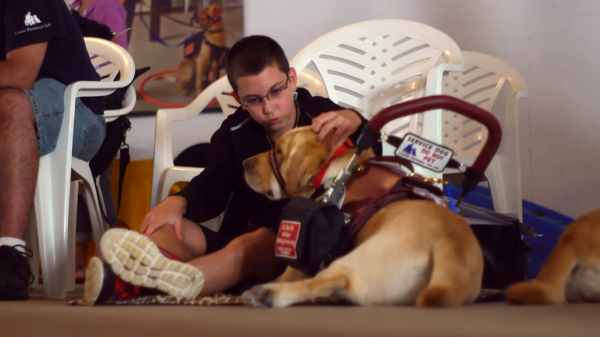

Some service dogs are called upon to alert their partner of an impending seizure, cardiac episode, etc. They are trained to remain calm, and go for help if necessary.
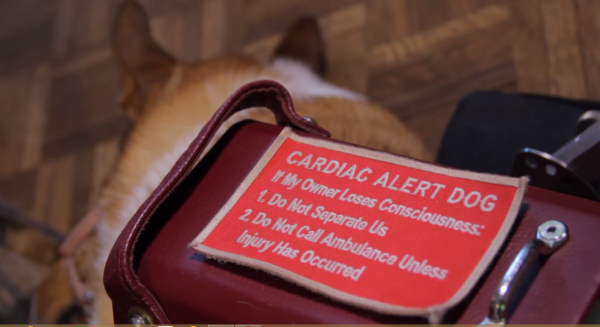

Any dog owner would rank this service high on the list of benefits to having a pup in your life. They keep our spirits high which is especially important for those living with physical and mental challenges.
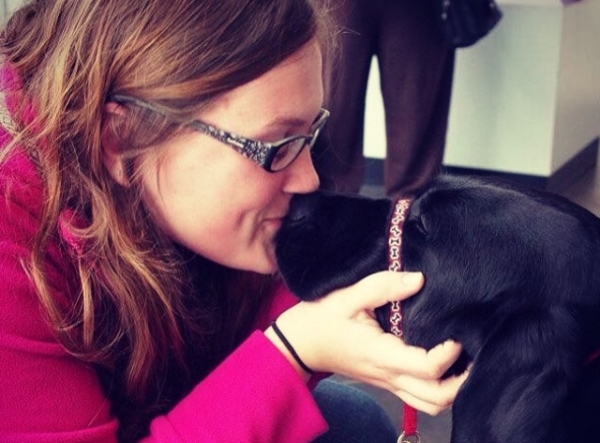

The dog shown here accompanies his wheelchair bound partner to orchestra practice. He ensures her safety and calmly provides any support she needs.
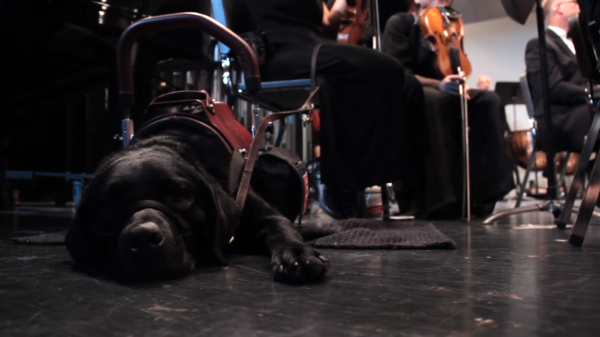

Many people find it difficult to relate to those with disabilities. They may be afraid to sound ignorant or offend them with questions. Service dogs can help build bridges and break the ice for partners to interact in their communities.
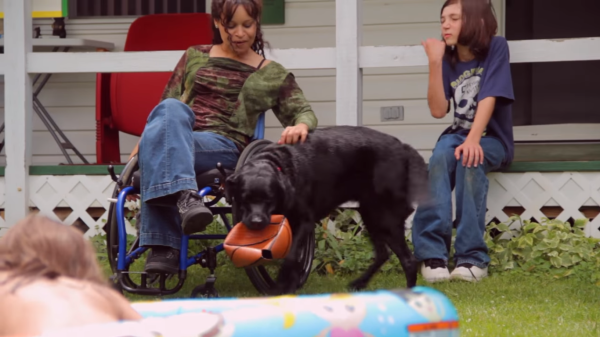

Depression is an understandable concern for those living with a disability. Having the responsibility of caring for another living thing can be enough to motivate them to keep going everyday.
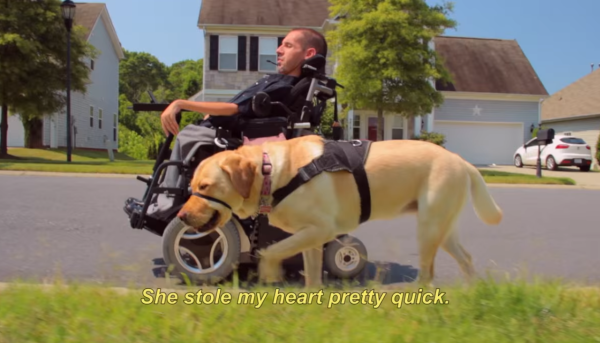

Simple little gestures like activating automatic doors or collecting an ATM card from the machine means that the partner can retain that much more of their independence.


In an office setting, service dogs can carry memos to other employees and make trips to the recycle bin.
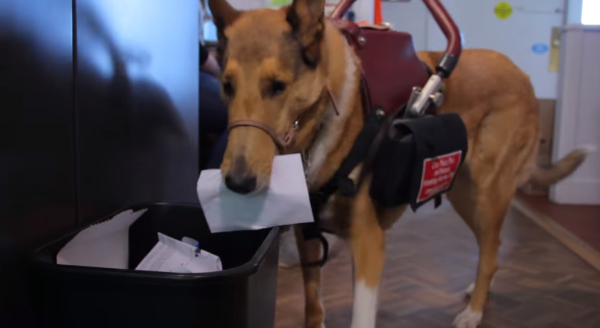

During their second year of training, Canine Partner dogs learn to operate a variety of buttons and switches. The love and affection part is something that develops naturally between the partners as their bond strengthens.
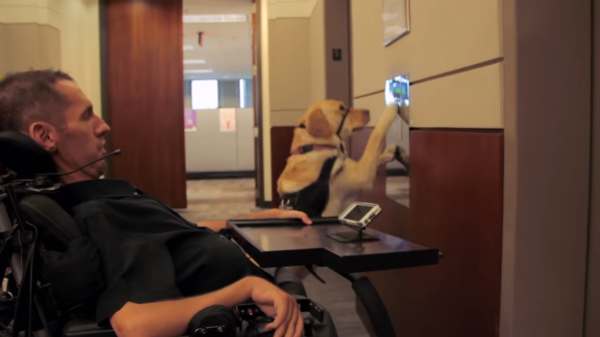

The yellow lab shown here is a companion dog for a young man on the Autism spectrum. She is his constant sidekick and best friend.
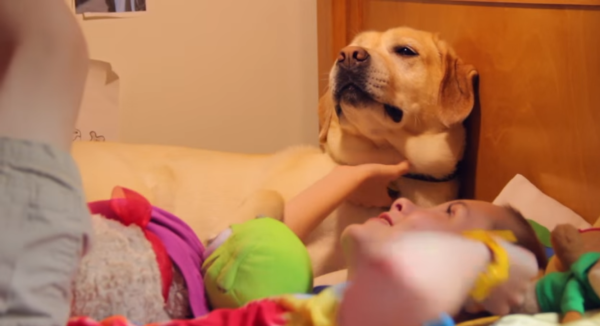

For disabled individuals living alone, safety is a big concern. Service dogs are trained to handle a variety of emergencies, and their soothing presence helps provide peace of mind.
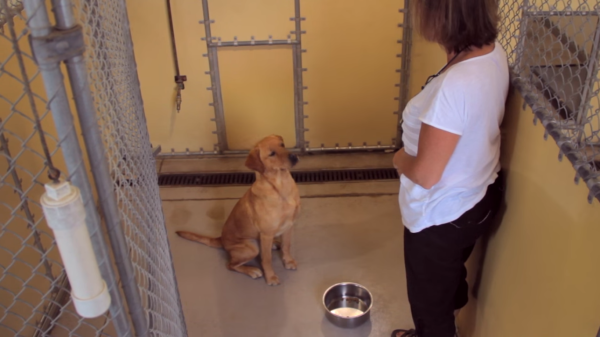

This task is taught early and must be mastered by any potential physical disability service dog.
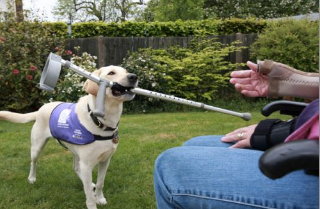

Service dogs are taught how to open and close cabinets, refrigerators, dishwashers, etc. They can retrieve items and operate a variety of buttons and switches.
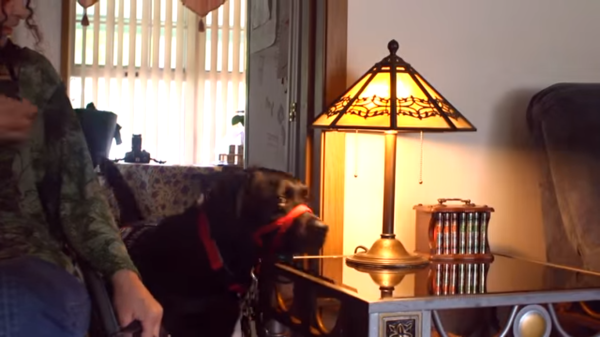

Depending on the needs of the partner, service dogs can assist with every step of the laundry process.
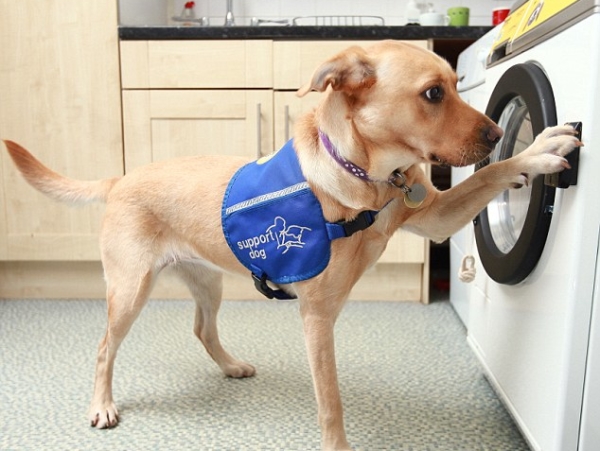

For those with mobility troubles, the dogs can actually help nudge their limbs into and out of bed as needed. They spend 24 hours on duty and providing constant companionship.
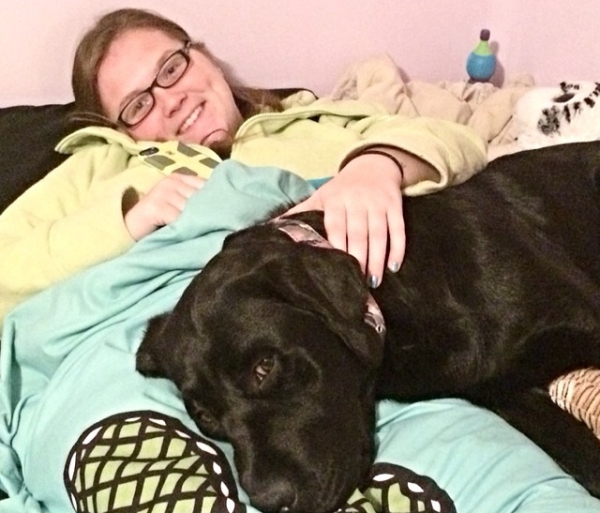

Not having to depend on an assistant, nurse or loved one for every single task is a huge benefit to having a service dog. They allow their partners to maintain some level of independence and privacy.
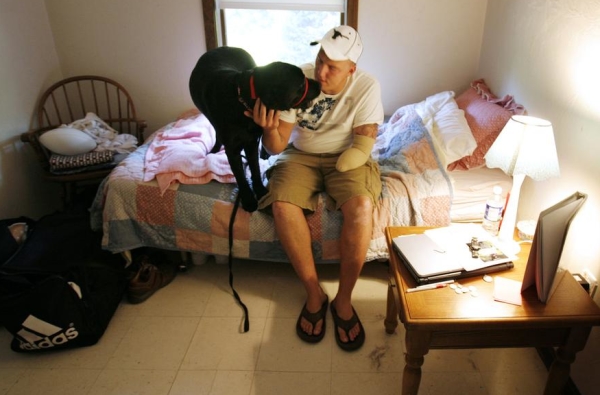

Tugging the duvet off or on, fetching the towel when partner is showering, helping partner stand up, undoing shoelaces and straps, closing the dishwasher, helping to turn partner over in bed, taking mugs and cups to the kitchen, unpacking the shopping, pulling letters out of envelopes, opening curtains, letting the cat in and out, pushing the partner’s arm back onto the armrest, handing the bus pass to the driver, moving chairs out of the way in stores and restaurants & lifting up partner’s arm when showering.
To learn more about Canine Partners for Life and see some of these incredible dogs in action, check out the video below.
If you would like to make a donation to their cause, please visit k94life.org.
H/T to Leek News UK
Featured Image via Lehigh Valley Kennel Club



